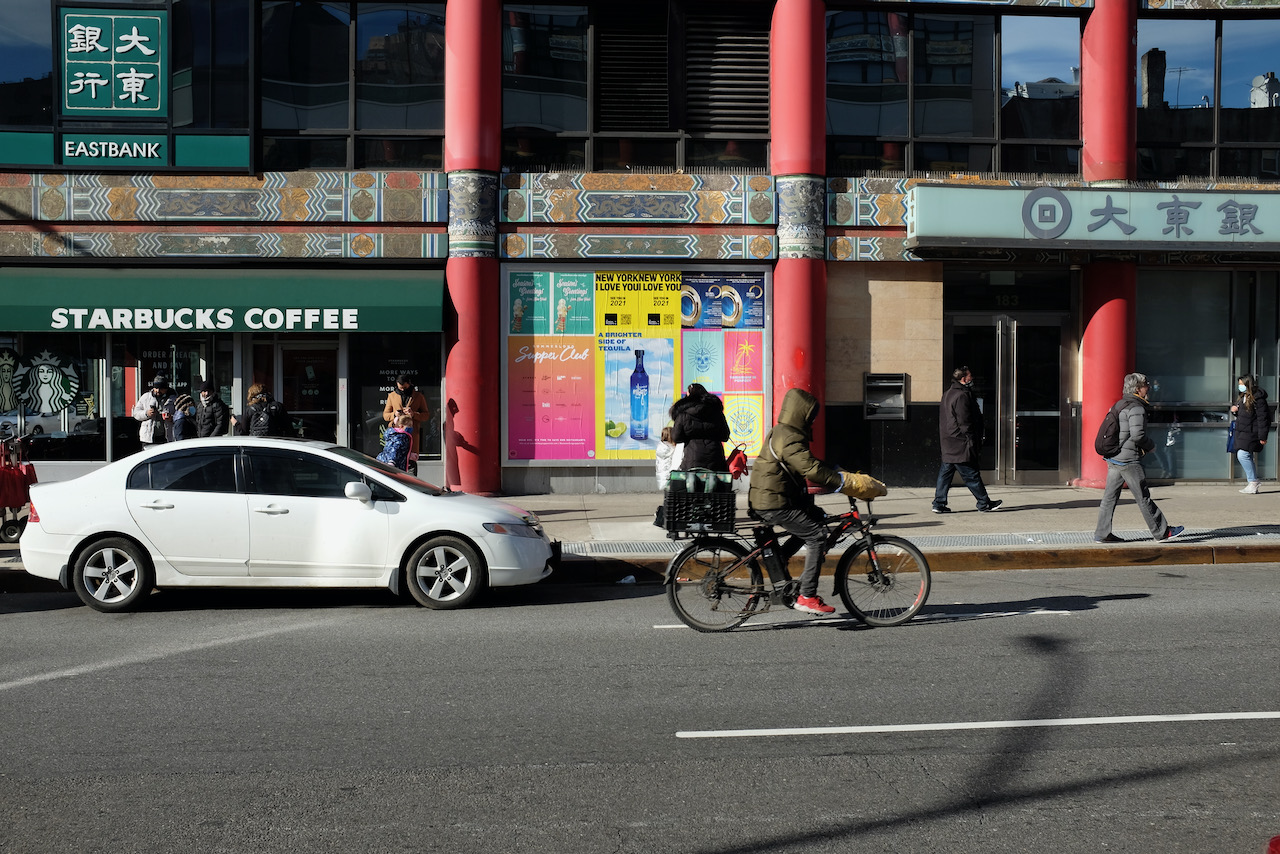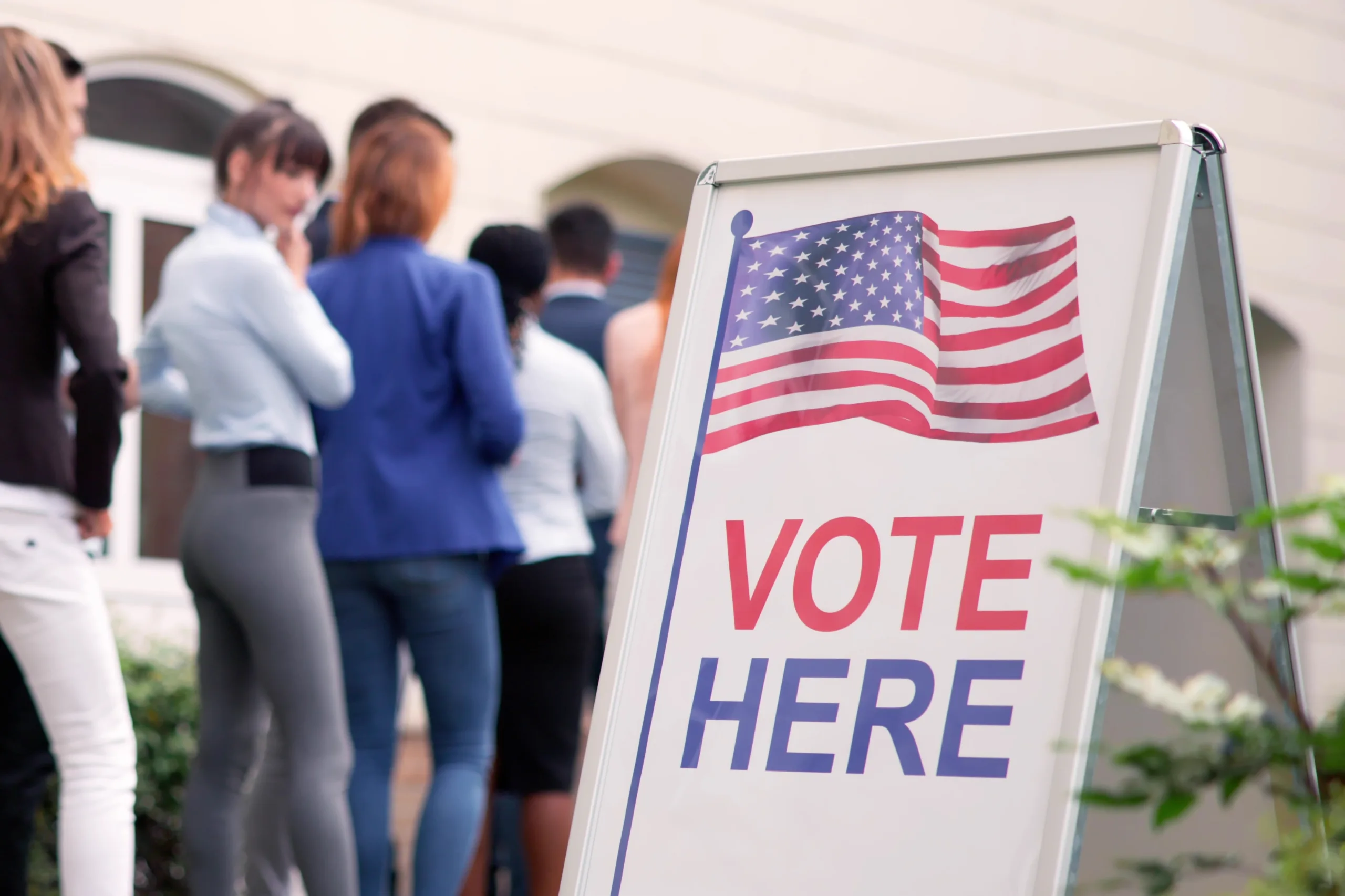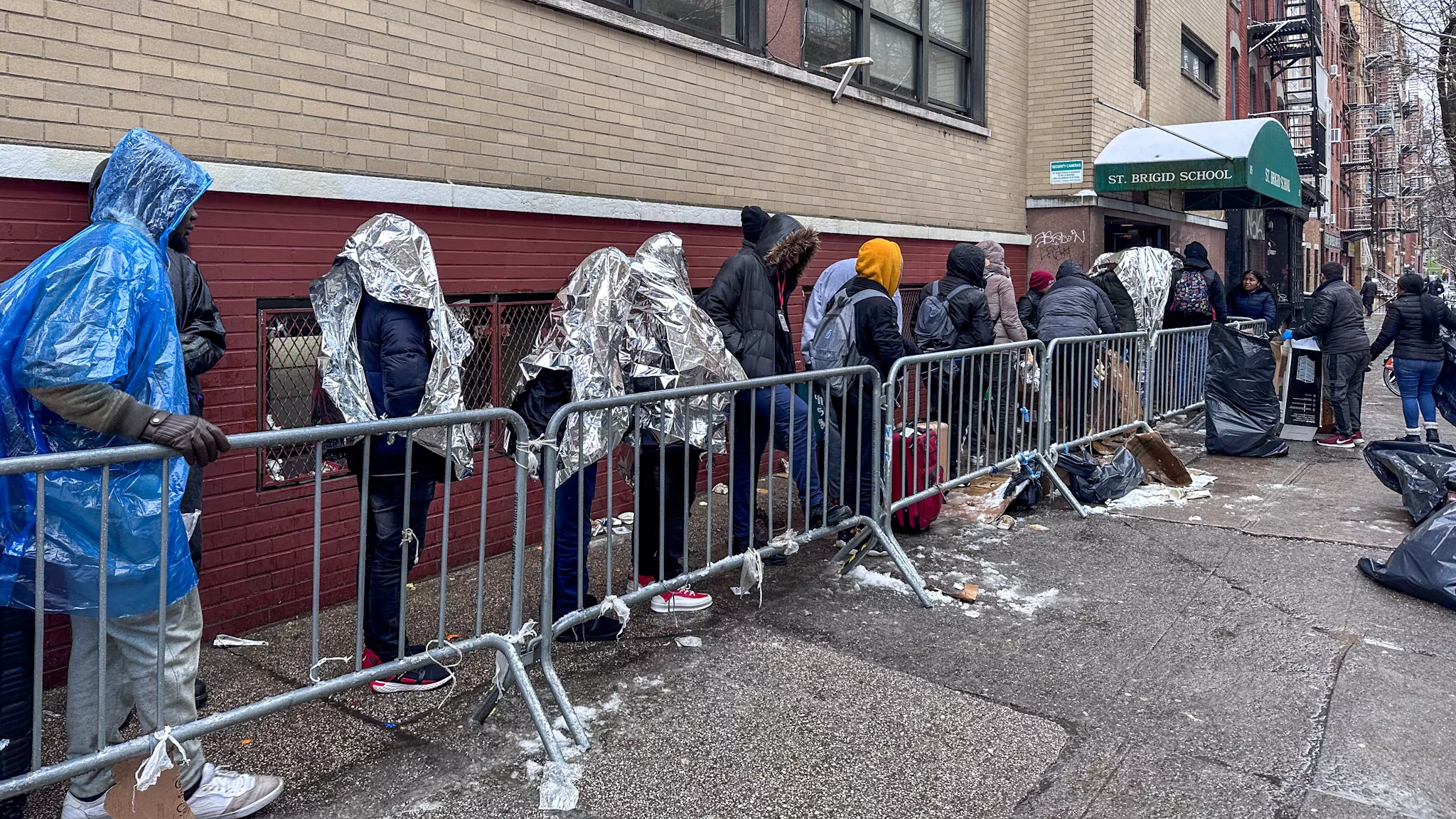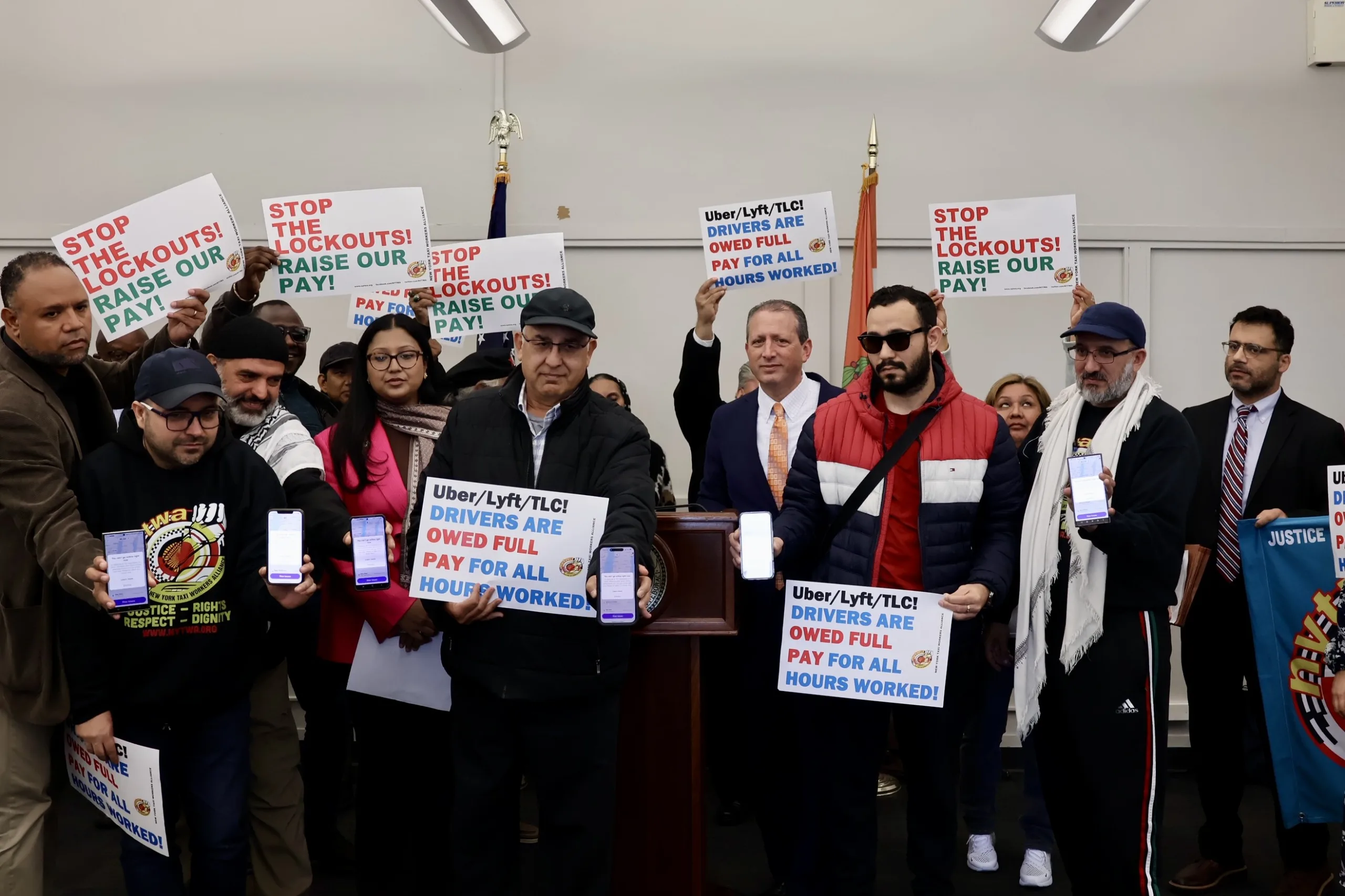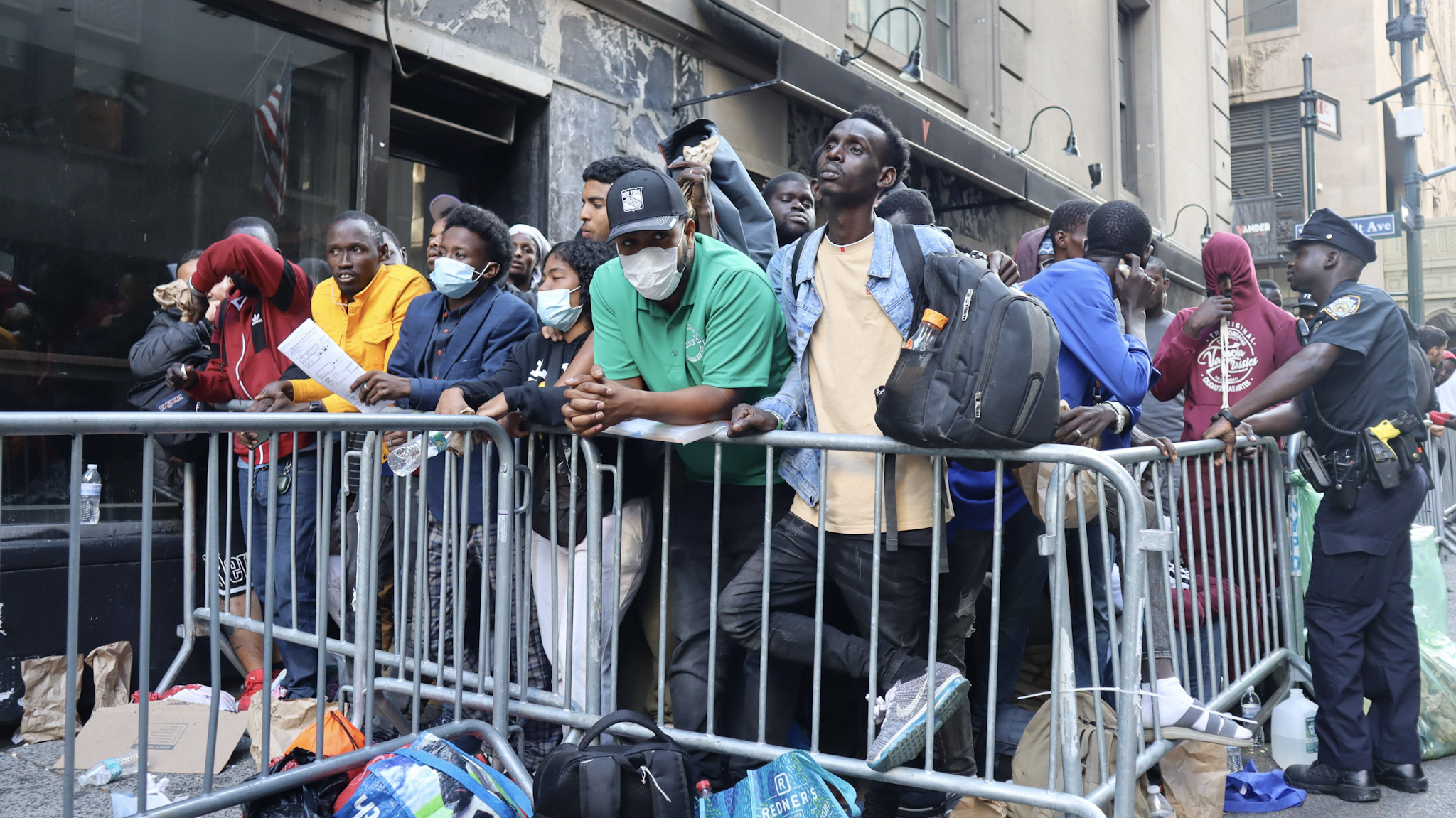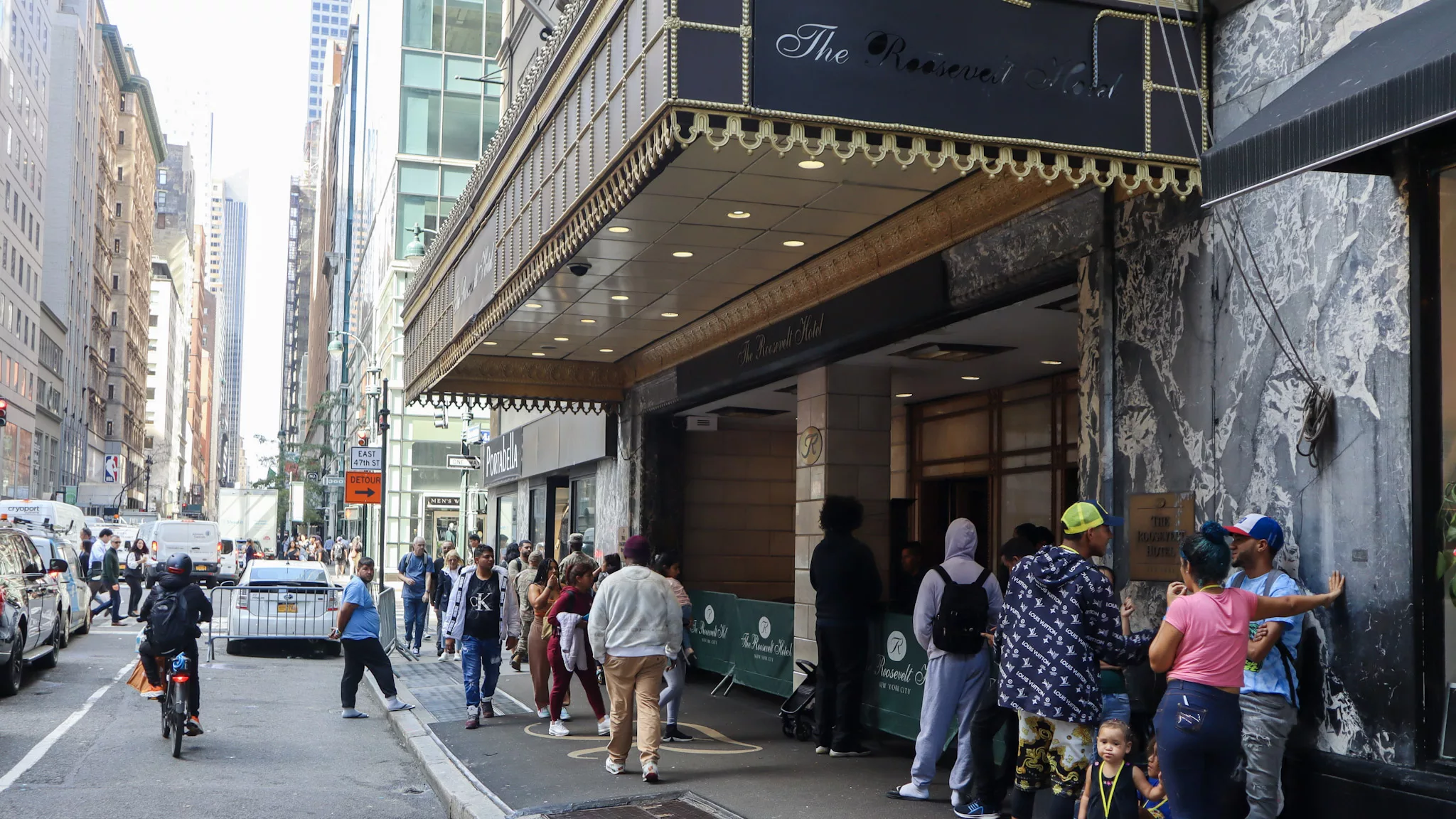Anthony Chavez has been one of New York City´s delivery workers for two years, the first of which he spent making deliveries within a 20 block radius of Manhattan, which quickly expanded to 80 blocks over the past year. He could not do his work without an electronic bike (e-bike), a requisite to completing deliveries within the time he is allotted.
Anthony had his first bike stolen in 2019 and his second, a few months ago in November 2020. He has been financially responsible for replacing both stolen bicycles, requiring him to borrow money from friends or dip into emergency savings.
“I love my job. I like the work I do, but it is a very insecure and unsafe job. When we get into an accident or are injured, or our bikes are stolen, no one is responsible for us. The restaurant or the app do not take responsibility, we have to pay the hospital bills or for the new bikes,” said Anthony.
Delivery workers contend with long days traveling far distances in the city; the companies they work for stealing their tips; lack of bathrooms and other amenities, and increasingly: armed robberies.
More workers are having their e-bikes taken from them by armed assailants as the pandemic has driven a rise in demand for food deliveries, an issue to which the NYPD has done little to respond. Months of inadequate action, despite calls for change, has led delivery workers to take things into their own hands. Delivery workers across the city are organizing and engaging in community policing and vigilance on behalf of fellow delivery workers.
Food delivery has always been a predominantly undocumented immigrant employed sector. Despite working 50-plus hour weeks, delivery workers are not considered full-time employees and not given benefits like health insurance or worker’s compensation.
Delivery workers, known for carrying large amounts of cash, have always been targeted for robbery; however, with an increased demand for e-bikes, workers are reporting higher numbers of stolen e-bikes. According to departmental data, the police solved about 36 percent of the electronic bike robberies in 2020.
A 2018 Queens College City University of New York study found that of the 153 delivery workers interviewed, 37% had been robbed. The New York Times reports that e-bike theft rose from 166 in 2019 to 328 in 2020.
E-bikes, a now indispensable form of transportation for workers in the food delivery industry, were legalized less than a year ago. Prior to the legalization of e-bikes, delivery workers were subject to $500 fines, confiscations, and at times, enforcement sweeps that became so rampant the Legal Aid Society filed a suit in State Supreme Court claiming that the NYPD was erroneously and disproportionately fining workers when they should be fining their employers.
A month into the pandemic, in April 2020, the bill passed, and the NYPD instructed to cut back on ticketing delivery workers who were performing an essential service. However, in the past few months, delivery workers have been organizing against not only an increase in what they allege is inordinately high and discriminatory traffic violation ticketing on the part of the police, but also a spike in stolen e-bikes and the police’s ineptitude to respond.
Anthony has at least eight friends whose bikes have been stolen recently, all of whom reported the robberies to the police and none of which have since been recovered. Half of these robberies were armed assaults — 3-4 people carrying guns and knives.
“Many [e-bike robberies] are happening in very violent ways,” said Anthony.
Despite being hurt, none of these delivery workers went to the hospital for fear of unpayable hospital bills. Delivery workers, already reluctant to involve the police due to language barriers or for fear that an interaction with law enforcement could lead to immigration court proceedings or worse deportation, have begun to take things into their own hands.
Also read: Essential Subway Workers Allege Underpayment and Dangerous Conditions
Ligia Guallpa, director of Worker’s Justice Project, the organization facilitating a support and organizing network called Los Deliveristas Unidos, through which delivery workers are communicating, self policing and making demands, Guallpa said that she does not know of any e-bike that has been recovered by the police nor an employer who has provided insurance or financial assistance to workers who have had their bike stolen or been injured while working.
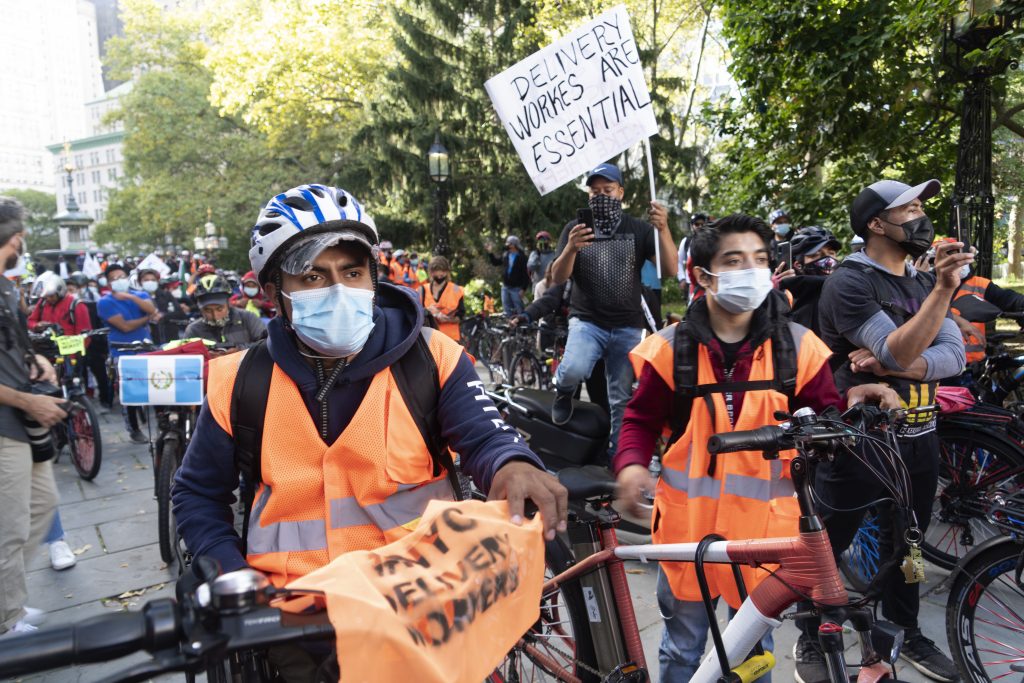
“Workers have resorted to doing the work of the police themselves,” Guallpa explained. Los Deliveristas Unidos communicate through WhatsApp and Facebook groups to report stolen bicycles, assist in pooling funds to cover hospital bills and strategize organizing tactics. Recently, they met virtually with heads of NYPD’s precincts to demand better protections and for a more thorough explanation of NYPD’s proposed solution, an e-bike registration and tracking program, which, Guallpa said, has yet to abate the issue.
Vanesa, (who requested to be referred only by her first name) a food delivery worker of five years said the community among food delivery workers is strong because it has to be. Workers are forced to pool money among themselves to cover hospital fees and stolen e-bike replacements. According to Anthony, at minimum one bike is reported stolen each day on the 80-person WhatsApp group.
“They [the NYPD] think of us less. We have risked our lives to feed everyone this past year, but when we get hit by a car the police don’t usually come unless there is a death,” Vanesa said. “The police always seem to be there to ticket us when we run a red light, but they are never there when we get hit by cars or our bikes get stolen.”
Vanesa’s boyfriend, Francisco Javier, is also a delivery worker. When his bike was stolen from his apartment last year, the police blamed his family for the robbery, she said. Francisco later found the stolen bicycle listed on Craigslist and requested that the police help him retrieve it. According to Vanesa, the police declined and Francisco, afraid to go alone, was unable to get his bike back. Documented reached out to the NYPD about the Vanesa’s claims and will update this story with a response if they provide one.
Also read: Jing Fong’s Workers are Fighting to Keep Their Chinatown Restaurant Alive
The NYPD did not address the concerns of the delivery workers in a request for comment. DCPI Spokesperson, Detective Sophia Mason provided a statement about the bicycle registration program, “Operation Identification.”
孰真孰假?对特朗普关于移民的言论的事实核查
“Legal E-Bikes and Scooters are eligible for the registration program. Individuals can go to their local Precinct and have their bikes registered and etched with a unique number. If the bike is lost or stolen this helps the NYPD identify the bike if and when it is recovered. Individuals who have their bikes stolen should call 911 immediately so that an investigation can commence as soon as possible,” Mason wrote in an email.
Guallpa is particularly focused on expanding the network of delivery workers because the majority of workers remain unaware of the internal organizing that exists and could benefit from its community’s demands and support system. “The poor are robbing the poor as a means of survival. It’s a poverty cycle,” Guallpa said.
While the increase in robberies are what has caught the media and NYPD’s attention, it has also elevated other demands such as access to restrooms, hourly pay, ability to reject jobs without fear of retaliation, and employer provided insurance.
“We are asking New York City to come together and protect these essential workers, not through putting more police on the streets but through demanding that real action be taken when bikes are stolen,” said Guallpa.
